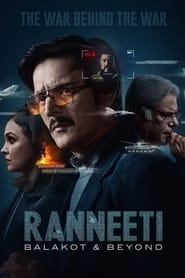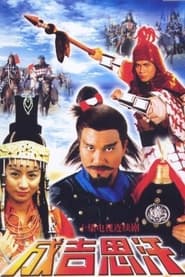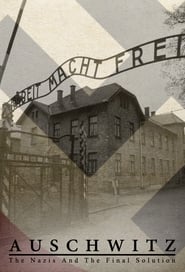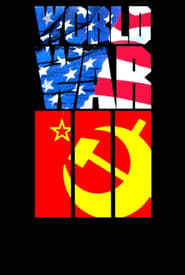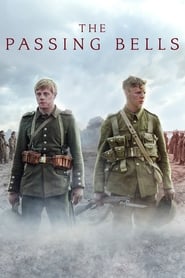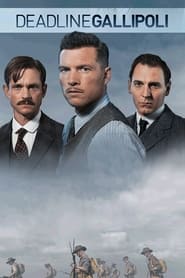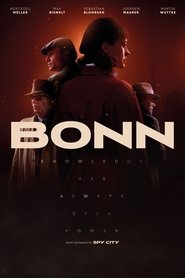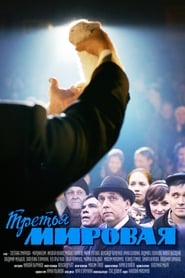Popular War Politics TV Shows - Page 40
-
National Treasure’s Extraordinary Journey
2019
star 7Ren Hongyi, a Kuomintang officer, and Zhou Ruosi, a cultural expert from the Forbidden City. Entrusted with safeguarding China's priceless treasures, they embark on a dangerous journey to move them south, believing that as long as the nation’s cultural heritage is preserved, China will endure. -
Ranneeti: Balakot & Beyond
2024
star 8Post the deadly Pulwama attacks, Kashyap and his team strike back with a fitting reply. In the age of hybrid warfare, they must race against time to bring back their captured pilot while also battling Pakistan’s lies in global media. -
Genghis Khan
1987
Genghis Khan
1987
-
Cuéntame cómo pasó
2017
Cuéntame cómo pasó
2017
star 2The series interspersed the most significant historical events of the southern country with the comings and goings of a family living in the suburbs of Buenos Aires. -
Auschwitz: The Nazis and the Final Solution
2005
star 7.5This documentary series tackles one of history's most horrifying subjects: the Holocaust and the infamous Auschwitz-Birkenau concentration camp. -
Unsinkable
2024
Unsinkable
2024
star 10A raw young officer and a handful of desperate men. A thousand miles of enemy infested ocean: and a ship that would not die. -
World War III
1982
World War III
1982
star 6.2When starving mobs begin rioting in the streets of Moscow, Soviet leaders believe they have no recourse but to seize the Alaskan pipeline to force the United States to end the grain embargo that has brought turmoil to the U.S.S.R. -
The Passing Bells
2014
The Passing Bells
2014
star 7.6At the outbreak of World War I, two teenage boys - one German and one British - defy their parents to sign up. An epic historical drama spanning the five years of the First World War, as seen through the eyes of two ordinary young soldiers. -
Deadline Gallipoli
2015
Deadline Gallipoli
2015
star 5.8Three journalists, Charles Bean, Ellis Ashmead Bartlett and Phillip Schuler, arrive at Gallipoli with the invading British and Allied troops in 1915. They will report the war but are prevented from getting out the true story of an unfolding disaster. From encampment in Cairo to Anzac Cove to the evacuation, this is the story of journalists who will not accept that truth be the first casualty. This is the story of the men who will not shut up. The actions of these men will help change the course of the campaign, ensure that a strategic disaster becomes a legend of human heroism, and leave an impregnable mark on each of their lives. -
伏击
2015
伏击
2015
-
Bonn
2023
Bonn
2023
star 7.8Bonn depicts the rise of the young West Germany, a country struggling to break free from the terrors and legacies of World War II and longing for a 'normal' life. Into this heady and volatile mix steps Toni, a young woman determined to seize every opportunity, overcome every obstacle and make her own way in what is still a very male-dominated society. But what at first appears to be only an entry-level office job at one of the country's two competing secret services soon sucks her ever deeper into a clandestine world of suspicion -
垂直打击
2006
垂直打击
2006
-
Rogue Arrows
2018
Rogue Arrows
2018
star 8The series examines a number of issues related to the Arab society, especially the Egyptian one, the most important of which is the problem of terrorism and how this issue is handled. -
The Eternal Wave
2010
-
Renascence
2020
Renascence
2020
star 7.6After Queen Yao Moxin is killed in a palace conspiracy, her soul transfers into her younger sister Yao Mowan. Surviving an attack and losing her memories, she slowly recovers her past and sets out to exact revenge—taking down her enemies one by one within the treacherous royal court. -
The Third World War
2013
The Third World War
2013
About the tragic love story against the backdrop of the Caribbean crisis. According to the plot of the film, after the aggravation of relations between the two superpowers in different regions of the Soviet Union, military training for reservists was organized. In a quiet village located somewhere in central Russia, they don’t know anything about the lofty goals of the political leadership of the USSR and the USA. But when men of draft age begin to receive subpoenas from the military registration and enlistment office, the villagers understand: a new war has begun... -
The Abyss – Rise and Fall of the Nazis
2021
star 6.2Explores the Third Reich from a contemporary perspective to investigate how the Nazis managed to conquer Germany and then half of Europe in the wake of World War I. -
Umi ni kakeru Niji: Yamamoto Isoroku to Nippon Kaigun
1983
The tumultuous life of the fallen Isoroku Yamamoto is depicted, along with his family, friends, and subordinates, his bonds with the women who loved and watched over him, and the sorrows of the nameless people who have disappeared in the torrent of history. -
Our Homeland
2025
Our Homeland
2025
star 8In 1937, Communist Zhuang Qifeng, under his leader Zhou Mi, mobilized peasants to reduce rents and form resistance groups, uniting against the Japanese puppet regime and establishing a base for the eventual victory in the war.
 Netflix
Netflix
 Amazon Prime Video
Amazon Prime Video
 Apple iTunes
Apple iTunes
 Apple TV Plus
Apple TV Plus
 Disney Plus
Disney Plus
 Google Play Movies
Google Play Movies
 Paramount Plus
Paramount Plus
 Hulu
Hulu
 HBO Max
HBO Max
 YouTube
YouTube
 fuboTV
fuboTV
 Peacock
Peacock
 Peacock Premium
Peacock Premium
 Amazon Video
Amazon Video
 The Roku Channel
The Roku Channel
 AMC+
AMC+
 Kocowa
Kocowa
 Hoopla
Hoopla
 The CW
The CW
 Vudu
Vudu
 Starz
Starz
 Showtime
Showtime
 PBS
PBS
 Pantaflix
Pantaflix
 FXNow
FXNow
 Tubi TV
Tubi TV
 Kanopy
Kanopy
 Comedy Central
Comedy Central
 Crunchyroll
Crunchyroll
 Microsoft Store
Microsoft Store
 Redbox
Redbox
 Sun Nxt
Sun Nxt
 ABC
ABC
 DIRECTV
DIRECTV
 Crackle
Crackle
 Fandor
Fandor
 Plex
Plex

